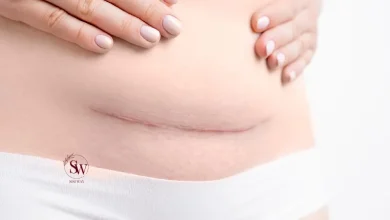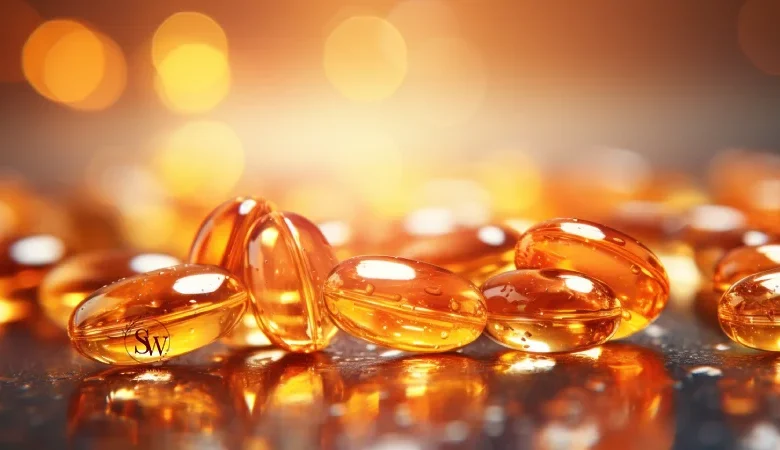
In the realm of nutrition, vitamins play a crucial role in maintaining optimal health. Among these essential nutrients, Vitamin E stands out for its remarkable antioxidant properties and diverse health benefits. From supporting immune function to promoting skin health, Vitamin E offers a plethora of advantages that are worth exploring.
Understanding Vitamin E:
Vitamin E, also known as alpha-tocopherol, is a fat-soluble antioxidant that plays a vital role in protecting cells from damage caused by free radicals. While it comprises eight different compounds, alpha-tocopherol is the most biologically active form in humans and is commonly found in dietary supplements and fortified foods.
What Does Vitamin E Do?
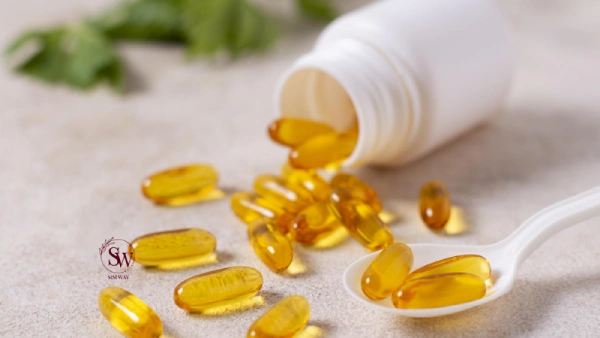
1. Antioxidant Protection:
Free radicals, generated through metabolic processes and environmental factors like pollution and UV radiation, can damage cells and contribute to various diseases, including cancer and cardiovascular conditions. Vitamin E neutralizes these harmful molecules, thereby protecting cell membranes and DNA from oxidative stress.
2. Immune Function:
Vitamin E supports the immune system by enhancing the activity of immune cells, such as T cells and B cells, which play a crucial role in defending the body against infections. Adequate levels of Vitamin E are essential for maintaining a robust immune response.
3. Skin Health:
As an antioxidant, Vitamin E helps to maintain skin health by protecting it from damage caused by UV radiation and other environmental aggressors. It also aids in skin repair and regeneration, making it a popular ingredient in skincare products.
4. Heart Health:
Several studies have suggested that Vitamin E may have a protective effect against cardiovascular diseases. It helps prevent the oxidation of LDL cholesterol, which is a significant contributor to the development of atherosclerosis. Additionally, Vitamin E may improve endothelial function and reduce inflammation in the cardiovascular system.
5. Eye Health:
Vitamin E plays a role in protecting eye health by preventing oxidative damage to the cells of the retina. It may help reduce the risk of age-related macular degeneration and cataracts, two common eye conditions that can lead to vision loss.
What Foods Have Vitamin E?

While Vitamin E supplements are available, obtaining this nutrient from natural food sources is preferable. Some excellent sources of Vitamin E include:
- Nuts and seeds (such as almonds, sunflower seeds, and hazelnuts)
- Vegetable oils (such as wheat germ oil, sunflower oil, and safflower oil)
- Green leafy vegetables (such as spinach and broccoli)
- Fortified cereals and whole grains
Recommended Dietary Allowance (RDA):
The recommended dietary allowance (RDA) for Vitamin E varies depending on age, sex, and life stage. According to the National Institutes of Health (NIH), the RDAs for Vitamin E are as follows:
- Infants (0-6 months): 4 milligrams (mg) per day
- Infants (7-12 months): 5 mg/day
- Children (1-3 years): 6 mg/day
- Children (4-8 years): 7 mg/day
- Males and Females (9-13 years): 11 mg/day
- Males and Females (14 years and older): 15 mg/day
- Pregnant and lactating females: 15 mg/day
How Much Vitamin E Per Day for a Woman?
For women aged 14 years and older, the recommended dietary allowance (RDA) for Vitamin E is 15 milligrams (mg) per day, according to the National Institutes of Health (NIH). This amount is based on maintaining optimal health and supporting various physiological functions, including antioxidant protection, immune function, and skin health. It’s essential for women to ensure they meet their daily Vitamin E requirements through a balanced diet that includes sources such as nuts, seeds, vegetable oils, and green leafy vegetables, as well as fortified cereals and whole grains.
How Much Vitamin D is Essential for Women’s Health?
Is Vitamin E Oil Good for Hair?
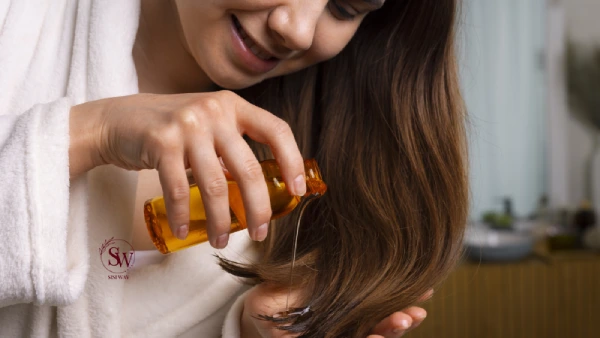
Beyond its internal health benefits, Vitamin E is also renowned for its potential to promote hair health when applied topically. Vitamin E oil is rich in antioxidants, which can help protect the scalp and hair follicles from oxidative stress caused by environmental factors like pollution and UV radiation. Additionally, Vitamin E oil is believed to nourish the scalp, improve blood circulation, and promote hair growth. It may also help moisturize the hair and prevent dryness, frizz, and split ends. Many hair care products, such as shampoos, conditioners, and serums, contain Vitamin E oil as a key ingredient, highlighting its popularity in the realm of hair care. While scientific research on the specific benefits of Vitamin E oil for hair is limited, anecdotal evidence and traditional use suggest that incorporating it into your hair care routine may contribute to healthier, more vibrant hair. As with any topical product, it’s essential to perform a patch test before using Vitamin E oil to ensure it doesn’t cause any adverse reactions or irritation.
What Does Vitamin E Do for Your Skin?
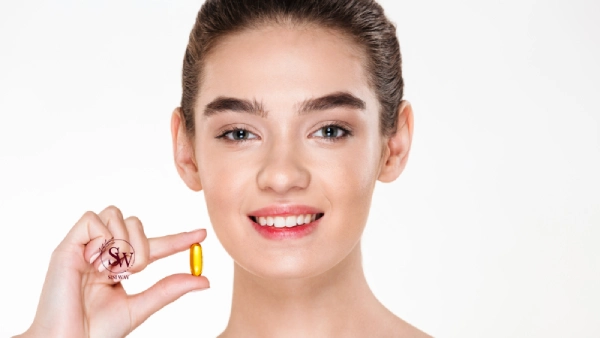
Vitamin E is a powerhouse nutrient for skin health, thanks to its potent antioxidant properties and ability to nourish and protect the skin from damage. When applied topically, Vitamin E can help moisturize the skin, enhance its barrier function, and promote healing and regeneration. It has been touted for its potential to reduce the appearance of scars, wrinkles, and fine lines, as well as to soothe irritation and inflammation. Additionally, Vitamin E may offer protection against UV damage, helping to prevent premature aging and sunburn. Many skincare products, including moisturizers, serums, and creams, feature Vitamin E as a key ingredient, reflecting its popularity and efficacy in promoting healthy, radiant skin. Incorporating Vitamin E into your skincare routine can help maintain skin elasticity, firmness, and overall youthfulness, making it a valuable addition to any beauty regimen.
Potential Risks of Vitamin E Supplementation:
While Vitamin E is generally considered safe when consumed from food sources, high doses from supplements may pose risks, including:
- Increased risk of hemorrhagic stroke
- Interference with blood clotting
- Nausea, diarrhea, and other gastrointestinal symptoms
- Potential interactions with certain medications, such as blood thinners
It’s essential to consult with a healthcare professional before starting any new supplement regimen, especially if you have underlying health conditions or are taking medications.
FAQ:
- Can Vitamin E prevent cancer?
While Vitamin E’s antioxidant properties may help reduce the risk of certain cancers, such as prostate cancer, research on its effectiveness in cancer prevention is inconclusive. - Is it possible to consume too much Vitamin E?
Yes, excessive intake of Vitamin E from supplements may lead to adverse effects, including an increased risk of hemorrhagic stroke and interference with blood clotting. - Can Vitamin E improve fertility?
Some studies suggest that Vitamin E may improve sperm quality and motility in men, potentially enhancing fertility. However, more research is needed to confirm these findings conclusively. - Does Vitamin E help with scars?
Vitamin E is often touted as a remedy for scar healing. However, scientific evidence supporting its efficacy in this regard is limited, and in some cases, applying Vitamin E directly to wounds may even cause irritation or allergic reactions. - Are Vitamin E supplements necessary if I have a balanced diet?
In most cases, obtaining Vitamin E from a balanced diet that includes nuts, seeds, vegetable oils, and green leafy vegetables should provide adequate amounts of this nutrient. Supplements are generally unnecessary unless recommended by a healthcare professional due to specific health concerns or deficiencies.
In conclusion, Vitamin E plays a crucial role in maintaining overall health and well-being, offering antioxidant protection, supporting immune function, and promoting various aspects of health, including heart and skin health. While obtaining Vitamin E from natural food sources is preferable, supplementation may be necessary in certain cases, under the guidance of a healthcare professional. As with any nutrient, moderation and balance are key to reaping the benefits of Vitamin E while minimizing potential risks.


